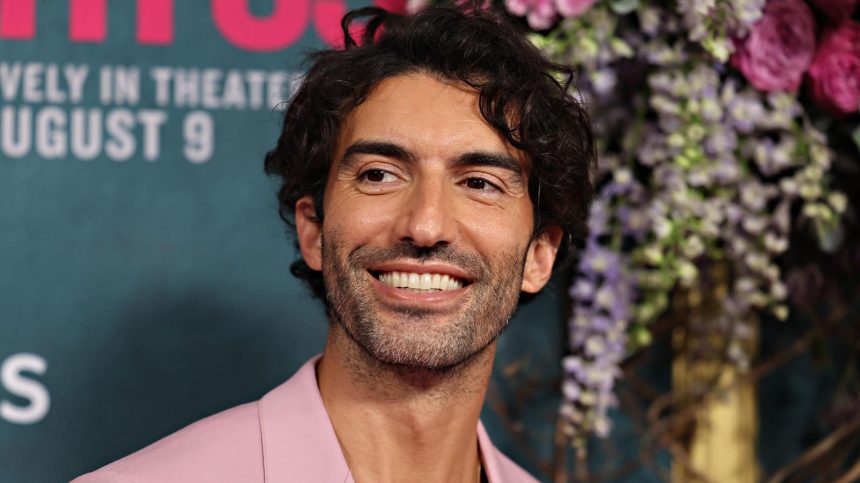The ongoing legal battle between actor and director Justin Baldoni and actress Blake Lively, stemming from their collaboration on the film adaptation of “It Ends With Us,” has escalated dramatically with Baldoni filing a 179-page lawsuit against Lively, her husband Ryan Reynolds, Lively’s publicist Leslie Sloane, and several others. Baldoni’s lawsuit alleges defamation, extortion, and a concerted effort to sabotage his career and reputation, painting a starkly different picture of the film’s production than the one presented by Lively in her own prior lawsuit. Central to Baldoni’s claims is the accusation that Lively fabricated allegations of sexual harassment against him, orchestrating a smear campaign through Sloane and Reynolds to damage his standing in the industry. He further accuses Lively of hijacking the film’s creative control, making unauthorized script changes, demanding access to editing, and attempting to extort producer credits.
Baldoni’s lawsuit details a complex web of alleged manipulative actions by Lively and her associates. He claims Lively conspired with the New York Times to publish a damaging article detailing an alleged smear campaign against her, which Baldoni asserts is a fabrication. He further accuses Sloane of spreading false rumors portraying him as a sexual predator and alleges that Reynolds personally contacted executives at Baldoni’s former talent agency, WME, to pressure them into dropping him as a client based on these unfounded allegations. Baldoni contends that the negative press Lively received during the film’s promotion was a result of her prioritizing the promotion of her personal brands over the film’s themes of domestic violence, not a consequence of any orchestrated smear campaign against her. He also alleges that Lively systematically excluded him from promotional activities, including press events, and even removed his image from marketing materials.
Baldoni’s lawsuit provides a detailed account of Lively’s alleged attempts to usurp his directorial authority over “It Ends With Us.” He claims Lively made significant unauthorized alterations to the script, particularly a pivotal rooftop scene, which he alleges she later falsely attributed to her husband, Ryan Reynolds. He also accuses Lively of demanding access to daily footage and requesting her own cut of the film, prerogatives typically reserved for the director. Baldoni alleges that Lively used these tactics, along with “extortionate threats,” to pressure the production into granting her a producer credit (p.g.a. mark) despite her limited involvement in the film’s production. He claims that he and producer Jamey Heath ultimately acceded to Lively’s demands out of fear of further disruption and damage to the project.
In his lawsuit, Baldoni directly refutes the allegations made by Lively in her own legal action. Lively had accused Baldoni of “fat-shaming” her on set and ignoring union recommendations regarding the presence of an intimacy coordinator. Baldoni counters that his inquiry into Lively’s weight was related to preparing for a physically demanding scene and involved consulting her trainer about an appropriate exercise regimen. He also claims that an intimacy coordinator was indeed present during the first half of production but alleges that Lively refused to meet with them. Baldoni’s lawyer, Bryan Freedman, has vehemently defended his client’s claims, accusing Lively and her team of a “duplicitous attempt” to destroy Baldoni’s reputation and career. Freedman maintains that the lawsuit is supported by substantial evidence and accuses Lively of exploiting victims of real harassment for personal gain.
While the lawsuit doesn’t directly name Taylor Swift, it alludes to a meeting between Baldoni, Lively, and Reynolds where an unnamed “famous, and famously close” friend of the couple was present. Text messages included in the lawsuit suggest this individual is Swift, and Baldoni characterizes her as one of Lively’s “most trusted partners” and “dragons,” implying that she was involved in discussions regarding Lively’s unauthorized script changes. The lawsuit highlights the influence this unnamed individual and Reynolds hold, portraying them as powerful figures who could make things “very difficult” for Baldoni. The text thread also shows Lively expressing dissatisfaction with Baldoni’s positive response to her rewritten scene, which she preferred to have praised unequivocally by him, Ryan and the third person present.
Lively’s initial lawsuit, filed prior to Baldoni’s countersuit, paints a contrasting narrative. She alleges that Baldoni engaged in sexual harassment on set, creating a hostile work environment. Her claims include unwanted improvised kisses during filming, inappropriate comments about her weight, and retaliatory actions against her for speaking out about the alleged misconduct. Lively also alleges that Baldoni orchestrated a smear campaign against her, citing text messages between his PR representatives as evidence. This escalating legal battle between Baldoni and Lively presents two conflicting accounts of the “It Ends With Us” production, with both parties accusing the other of serious misconduct. The legal proceedings will ultimately determine the validity of these allegations and the extent of damages, if any, to be awarded.



